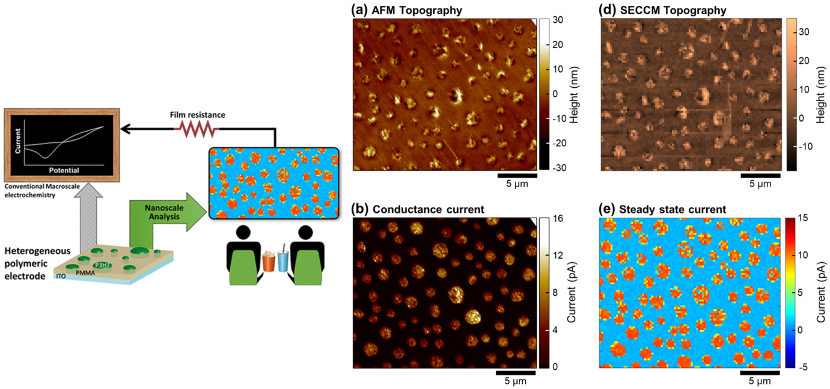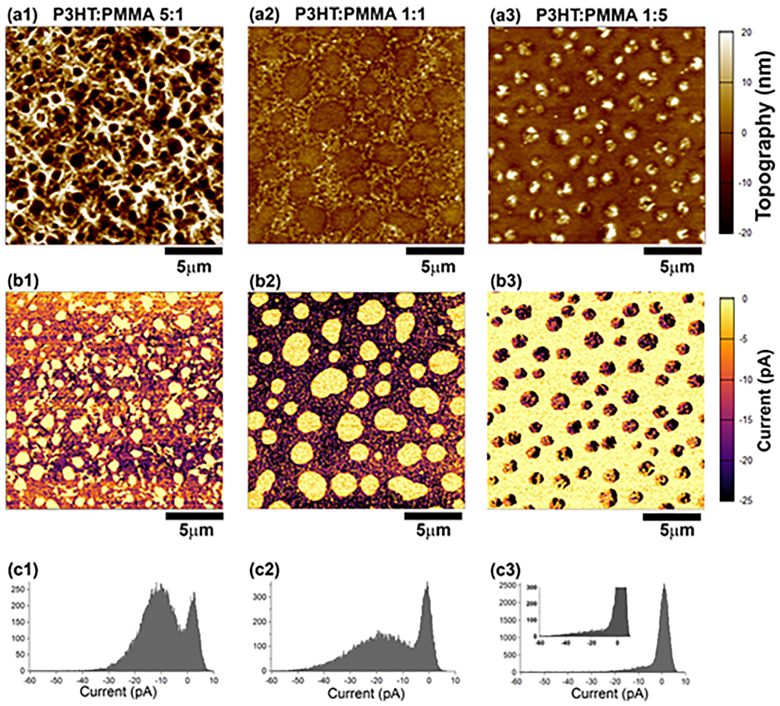AFM Systems
AFM Accessories
Learning
Contact Us
 Part of the Oxford Instruments Group
Part of the Oxford Instruments Group
Researchers evaluated conductive polymer blends with AFM, scanning electrochemical cell microscopy (SECCM), and other techniques. The data provide information on multiple length scales that elucidate relations between structure and electrochemical/electrical properties.

Flexible microelectrode arrays could enable next-generation products ranging from advanced supercapacitors to wearable health monitors. These arrays could be created by printing polymer blends containing conducting domains in an insulating phase. Although this structure inherently involves nano- and microscale heterogeneities, the materials are typically characterized by macroscale tools.
To address this issue, researchers at the University of Warwick (U.K.) and the University of Arizona (U.S.) performed experiments to probe structure and electrochemical properties on multiple length scales. The samples consisted of poly(3-hexylthiophene) (P3HT) domains in poly(methyl methacrylate) (PMMA). Techniques included voltammetric SECCM movies, AFM imaging of current and morphology, and finite element modeling.
Measurements showed the conducting P3HT domains generally had chemical and electronic behavior similar to bulk material. However, the results also indicated a need for caution when judging polymer electrode quality with conventional, bulk voltammetric experiments. Overall, the study demonstrates a correlative, multi-microscopy approach of potential value for many conductive polymer systems.

Images of tapping-mode topography and phase acquired on the Cypher S AFM allowed clear visualization of blend components with nanoscale resolution. Images of local current were acquired using conductive AFM (CAFM) on the Cypher ES AFM and a dual-gain ORCA module. This module enables high-sensitivity current measurements over a huge range (approximately 1 pA to 1 μA). Experimental conditions were further controlled using the CoolerHeater Sample Stage to maintain constant sample temperature. Supplemental CAFM measurements were also obtained with a MFP-3D AFM.
Citation: E. Daviddi, Z. Chen, B. Massani et al., Nanoscale visualization and multiscale electrochemical analysis of conductive polymer electrodes. ACS Nano 13, 13271 (2019). https://doi.org/10.1021/acsnano.9b06302
Note: The data shown here are reused under fair use from the original article, which can be accessed through the article link above.
